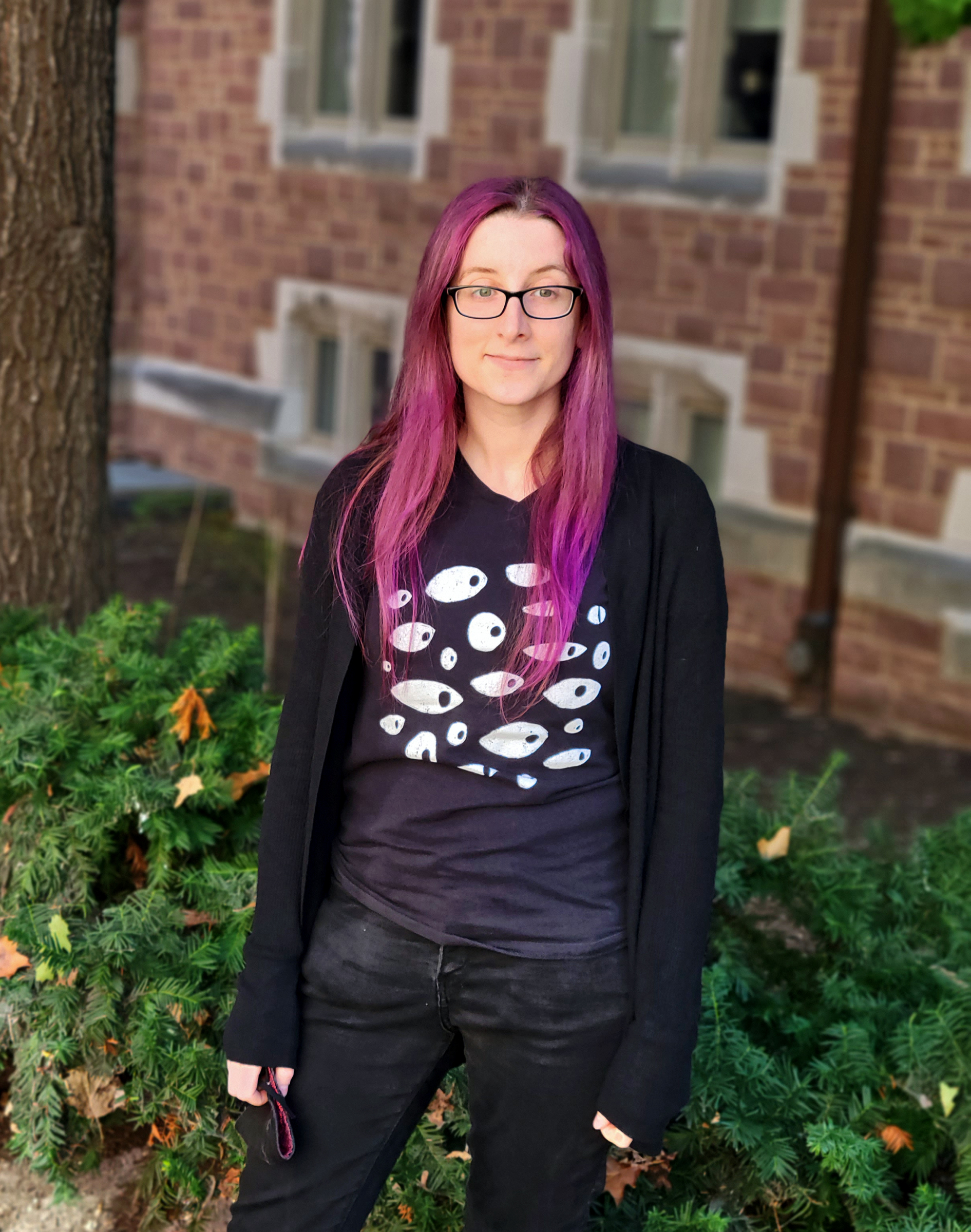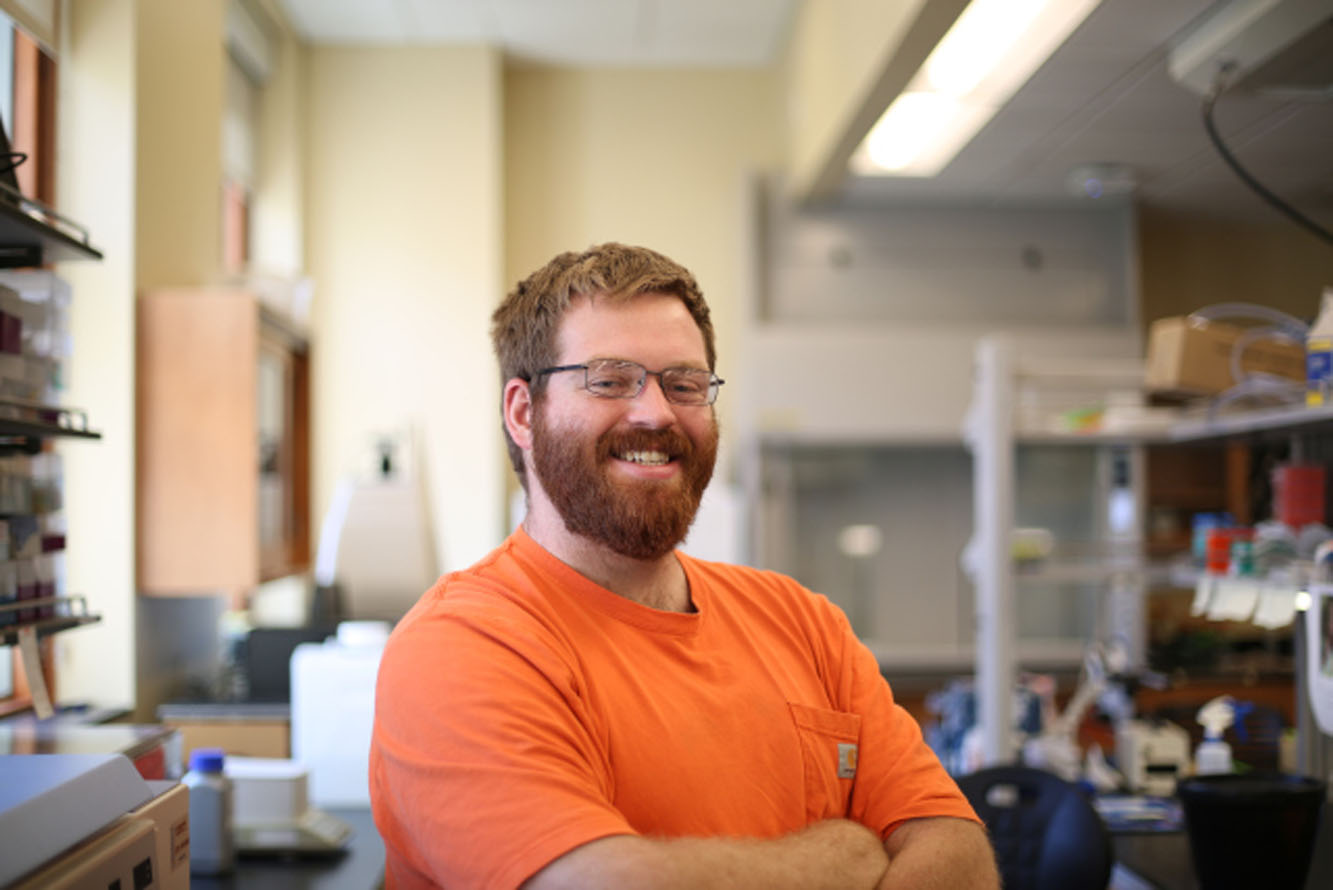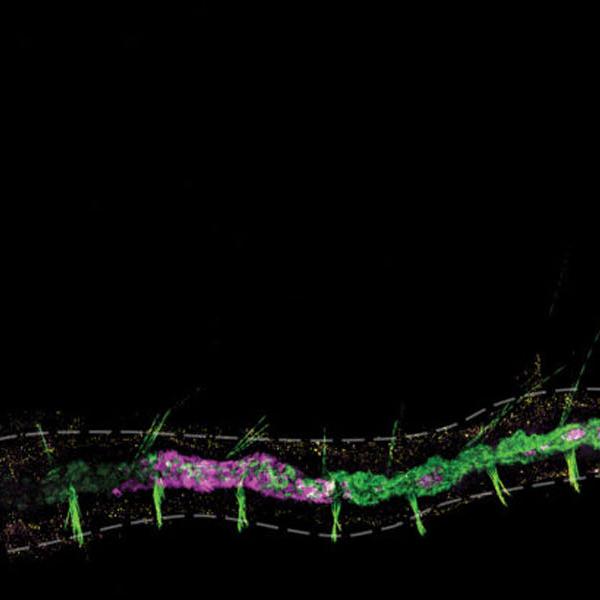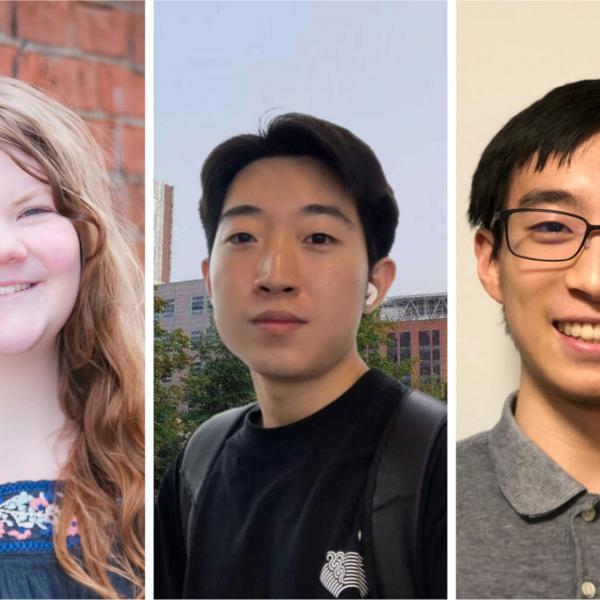Margaret Steele, postdoc in the Strassmann Queller Lab, grew up in Austin, Texas. She is a third generation PhD; her grandparents met in graduate school, and her mom has a PhD in geology. Growing up around scientists and spending time in her mom’s lab fostered an early interest in research. She completed her undergrad at Whittier College in Los Angeles, CA, followed by her PhD in Microbiology at University of Texas—Austin. Steele joined the Strassmann Queller Lab at WashU in 2020. Coincidentally, Joan Strassmann was a teaching assistant for Nancy Moran, Steele’s PhD advisor. Steele studied interbacterial antagonism in honeybee gut microbiota in the Moran Lab. Now she is interested in discovering mechanisms through which bacteria interact with Dictyostelium discoideum amoebae to evade predation and persistently infect amoebae.
Steele taught the class Bio 4935: Research Perspectives for a few semesters. The class has taken different forms over the years based on the instructor. In her version of the class, students learned how to write a scaled-down version of an NIH grant proposal. They wrote the background and significance of their project, designed a hypothesis and detailed aims, where they talked about the methods that they planned to use and the expected results they hoped to find. She had the students create a list of things that could go wrong with their proposed project and how they could salvage the results, all things one would put into a real grant proposal. Then they did peer review, evaluating one another's work, which worked out well for the mentees, because they could take their proposals and use them for honors theses.
“I was inspired by my own undergrads who I mentor at the bench. As they gain experience working in the lab, they learn about techniques, but miss out on other important skills for researchers like designing their own research projects and writing up their results. I wanted to give them an opportunity to fill in that gap. So the first semester that I taught Research Perspectives, I taught it as a grant writing class,” Steele explained.
The next two semesters she taught it as a thesis writing class, having students work on each section of their honors theses: background methods, introduction methods, results, and discussion. Students gained experience by practicing presentation of their own research to the class. Every student had two 10-minute presentations during the semester. They got a chance to do two rounds of peer review and revision.
Research Perspectives is always taught by someone from Strassmann Queller Lab. In previous semesters, the class was taught as a journal club where students read papers and discuss them in the class. Currently postdoc Tyler Larsen is teaching it.
Larsen is from Albuquerque, New Mexico. He completed his undergraduate degree at University of Delaware, followed by a Masters in Microbiology at University of Washington, and a PhD in Evolutionary Biology in 2022 at WashU in the Strassmann Queller Lab. He’s a self-proclaimed animal fanatic with a love for snakes, insects, and nearly every other creature.
“I remember seeing Jurassic Park as a 6 year old and resolving that, whatever it took, I would be one of the scientists resurrecting dinosaurs. I eventually resigned to the idea that I’d have to leave that to later generations, but I’ve never wavered from wanting to work in biology,” Larsen said.
Larsen’s work in Strassmann Queller lab centers on the interactions between organisms (specifically the social amoeba Dictyostelium discoideum), both within species and between species. He is particularly interested in how cooperation and conflict affect the way organisms evolve, and any system in which the traditional definitions of ‘organism’ become hazy. The microbe D. discoideum engages in complicated social behavior wherein tens of thousands of amoebae aggregate together to form multicellular structures. It interacts with various bacteria that live with it in the soil, some as prey, others as pathogens, and others as potentially beneficial partners.
Larsen’s teaching of Research Perspectives this semester is focused on science communication. Students spend time breaking down different parts of science papers and dissecting what makes them effective.
“Many of the things which make for engaging novels, TV shows, and movies have parallels that we can apply to scientific writing as well. We’ve put a lot of emphasis on how important structure is to communicating an idea – particularly in science when many of the ideas involved are complicated and involve lots of background context to understand. Later in the course we’ll be applying many of the same ideas to making effective figures, posters, and presentations,” Larsen explained.
Research Perspectives is taught most spring and fall semesters by different instructors from the Strassmann Queller Lab, offering students many opportunities to work on their writing and communication skills. Learn more about Strassmann Queller Lab/s research HERE.






